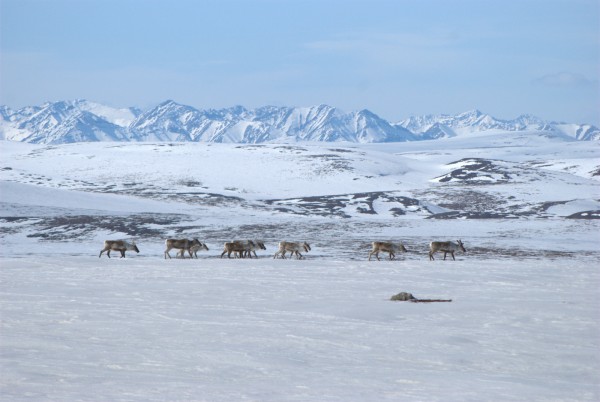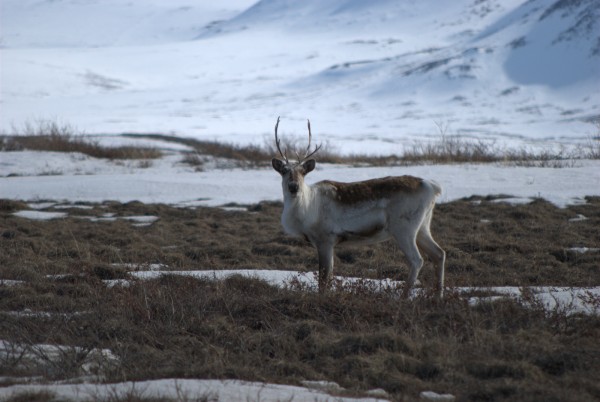More wildfires could cut success for hunters of forest-dwelling caribou
July 25, 2014
907-474-7064
7-25-2014

Everyone needs refuge from cold arctic winters, even caribou.
Some caribou find it in the densely packed spruce trees of the boreal forest, but, as fires increase in this ecosystem, the ranges of caribou are likely to shift, making it harder for some hunters to be successful.
These are the results of a new study published in the journal PLoS ONE by researchers at the University of Alaska Fairbanks and the U. S. Geological Survey.
“We project that the Porcupine caribou herd will lose 21 percent of winter habitat to fire by the end of this century, with the majority of this loss driven by increased flammability in spruce forests in the Yukon," said Dave Gustine, a research wildlife biologist with the USGS and lead author of the study.
The researchers used computer models to simulate the effect of increasing temperatures on plants, soil dryness and wildfire in Alaska and Canada's Yukon. They found that warming temperatures are likely to increase the flammability of boreal forests. Caribou avoid burned out areas, so, as fire increases, they are likely to seek new areas for food and shelter. This could directly impact Interior communities, such as Arctic Village, Fort Yukon or Old Crow, that rely on the Porcupine caribou herd for food and their cultural value.

In contrast, the Central Arctic caribou herd spends its winter on the tundra, where fires are projected to have less of an impact on caribou habitat. “Fires were less numerous and smaller in tundra habitats compared to spruce. … (and the) Porcupine caribou herd, which winters primarily in the boreal forest, could be expected to experience a greater reduction in lichen-producing winter habitats than the Central Arctic herd that winters primarily in the arctic tundra,” said Todd Brinkman, co-author of the study and researcher at the UAF Scenarios Network for Alaska and Arctic Planning.
This work was funded by USGS and is part of the USGS Changing Arctic Ecosystems Initiative.
The full article is available on the PLoS ONE website.
ADDITIONAL CONTACTS: Todd Brinkman tjbrinkman@alaska.edu, 907-474-7139; Dave Gustine, dgustine@usgs.gov, 907-786-7435.
NOTE TO EDITORS: Photos are available for download at //news.uaf.edu/wildfire_caribou.
KT/7-25-14/018-15


